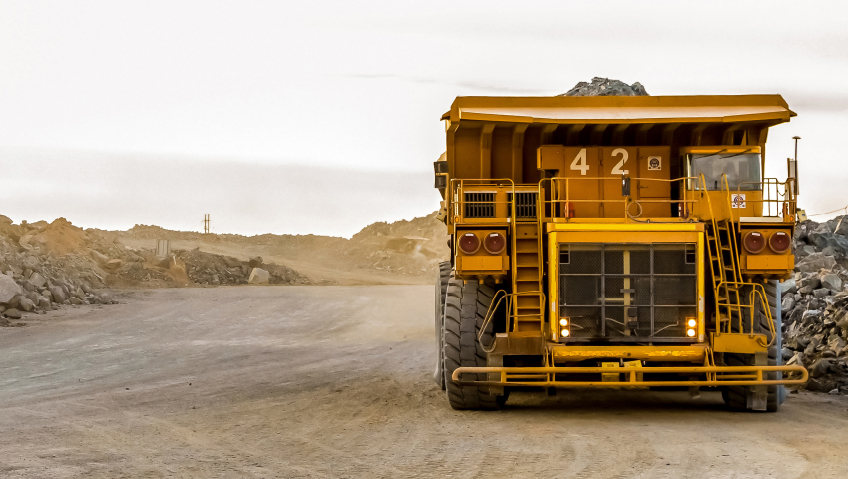SWANA (Solid Waste Association of North America) is a professional organization providing advocacy, research, and education to solid waste leaders in the public and private sectors. “SWANA is unique, as it is the only association in the waste and recycling sector that represents people in both the public and private sectors,” explained David Biderman, Executive Director and CEO of the Solid Waste Association of North America. “We are also the only solid waste association with chapters from coast-to-coast, and this is true both in the United States and Canada.”
Established in 1961, the group was led by various municipal managers and supervisors in southern California who were already focused on sanitation and waste collection worker safety. Originally, it was named the Governmental Refuse Collection and Disposal Association (GRCDA) and it directed most of its attention toward training and information sharing. Today, SWANA has approximately 11,000 members in 47 chapters throughout the United States, Canada, the Caribbean, and the Pacific Basin.
Membership in SWANA comes with a diverse range of benefits for various companies and agencies affiliated with the solid waste industry. “One of the primary benefits is being part of the large SWANA community, which provides networking and information-sharing opportunities at state and provincial chapter meetings and events, national conferences such as WASTECON, and digitally through our webinars and on-line forum,” explained Biderman.
Another advantage of SWANA membership is education through industry-leading certification programs. The organization certifies more than 500 people each year and the most popular certification is the Manager of Landfill Operations (MOLO) program.
In the United States, SWANA has recently expanded its advocacy efforts in Washington, D.C. with Congress and federal agencies. Its objective is to address a wide variety of important topics impacting solid waste employers and employees, and one of the most notable of these is safety.
SWANA’s website states that solid waste collection employees have the fifth highest fatality rate in the United States. There are numerous safety hazards associated with solid waste collection, processing, and disposal such as vehicular accidents and exposure to medical waste and dangerous materials. SWANA is committed to improving safety and has developed various programs and initiatives to protect employees in the field of solid waste collection. “SWANA believes that every solid waste worker should be able to go home at the end of his or her shift safely, and that every solid waste employer has a responsibility to provide the tools and resources to help make that happen,” said Biderman.
The national epidemic of distracted driving as a result of the widespread use of cellphones has worsened the hazardous conditions for waste collectors. Over the past several decades, there has been a significant increase in the number of times a garbage collector was hit by another vehicle and that number has continued to rise. With a substantial number of collectors on the street all over the country, there is a high risk of injury or death with distracted drivers on the road. SWANA is helping to mitigate this problem through advocacy. It is pushing for states to increase the penalties against drivers who drive into collection workers or garbage trucks, similar to the heightened penalties for accidents involving emergency responders. The initiative has been successful in much of the U.S., with 30 states giving special protection to solid waste workers. These laws are known as “Slow Down to Get Around” laws, and additional information can be found on SWANA’s website: swana.org.
Other examples of SWANA’s dedication to improving safety in the solid waste industry include: providing state-of-the-art safety training at its national conferences and through its state chapters; establishing a Safety Ambassador program several years ago that appoints a safety ambassador in each SWANA chapter as a principal resource for members at the local level; hosting Hauler Safety Outreach events at disposal facilities, beginning in 2018, which provide an opportunity to reach many front-line drivers and helpers who are not SWANA members; and asking solid waste employers to take a Safety Pledge declaring they agree not to work in an unsafe manner. As of March 1, 2020, more than 3,500 people had taken the Safety Pledge. SWANA will continue to provide valuable information and resources that help to reduce fatalities, accidents, and injuries – though this goal comes with its fair share of hurdles.
One of the principal challenges facing the solid waste collection industry is that, even though it is recognized as an essential service, it is not compensated as such. If the cost of garbage collection is compared to any other utility service including electricity, cable TV, or water, garbage collection costs significantly less. For approximately 15 to 25 dollars a month, $300,000 trucks are sent to people’s homes each week to pick up and transport their waste and recycling.
COVID-19 is the latest example demonstrating how essential solid waste collection is to the public. As people quarantined themselves, garbage collection continued because otherwise it would lead to adverse public health threats. People are accustomed to paying very little for such an important service, and hopefully one silver lining to the pandemic will be an increased appreciation for the essential service of garbage collection. The maker of Glad garbage bags teamed with SWANA to develop a “Sanitation Workers Support Fund” to recognize waste collection workers and provide money to those workers who tested positive for COVID-19 or to their family if they died.
Notwithstanding COVID-19, the solid waste industry requires collectors to work in a very unpredictable environment. They work in all types of weather conditions and have no control over what is put into the trash. This is a work setting that can be challenging on a daily basis, which makes it difficult to attract and retain workers. “Although many six-year-olds are fascinated by garbage trucks, not a lot of people grow up wanting to be in the solid waste industry, so we have difficulty recruiting and retaining qualified workers, particularly as drivers or mechanics,” shared Biderman. To overcome this challenge, SWANA supports efforts in the industry to expand the use of social media to recruit younger workers. It also encourages reaching out to veterans coming out of the military who have the technical skills to operate heavy equipment.
SWANA also recently began a Young Professionals program to recruit younger employees aged 22 to 35 into the association. The concept is to make it easier for these new generations of employees to participate in the organization and give them the opportunity to network with each other. The program has grown rather rapidly and now has nearly 1000 young professionals, also known as YPs. The YPs make up nearly ten percent of the association and they are a welcome source of energy and new ideas. SWANA has also made its membership free for any full-time college student. “We want to try to attract students into our industry because it’s a terrific industry to be part of. The people are great, it’s very recession-resistant, and there’s opportunity for professional growth and success,” explained Biderman.
The International Solid Waste Association (ISWA) connects solid waste management companies and organizations around the world to resources and to each other. SWANA is the U.S. and Canadian representative for the IWSA. Outside of North America, Australia, and Europe, solid waste management is often found to be lacking in rigorous environmental, health and safety regulation. SWANA has been working closely with other members of the ISWA to implement more effective safety standards around the world.
“It’s a long-term goal of ISWA to make safety a higher profile activity of the organization and I expect that SWANA will play a leading role in helping to make that happen,” said Biderman.
Toward this goal, in early 2019 the organization applied for and was awarded a U.S. State Department grant to conduct landfill training and capacity building in Colombia. Through this effort SWANA aims to help that region bring a strong, safe regulatory structure to solid waste management. SWANA sent a team of experts to a number of Colombian landfills to assess the current operations and met with regulatory officials from all of the agencies that regulate various aspects of landfill operations in that region. A specialist was brought on to analyze the gap between Colombian and U.S. regulatory standards, and Colombian landfill operators came to the United States in November 2019 for a tour of modern American landfills and to meet with government officials. A week-long classroom training program in Bogota was scheduled to take place in June, and that will be replaced by a virtual educational program likely to occur later this summer. SWANA expects more than one hundred participants from throughout Latin America in this program, which will be free.
In December 2020, SWANA will begin to develop a new five-year strategic plan and hopes that it will be as successful as its 2015 strategic plan, which helped the organization grow from 8,200 to more than 11,000 members over five years. “The solid waste industry is always changing and SWANA continues to change as well. We are diversifying our educational offerings to provide more digital training opportunities, and updating MOLO to incorporate the latest technological and other operational innovations,” said Biderman.
The solid waste industry is often overlooked, but it should be appreciated as a critical service that is essential to the quality of life within every community all over North America. SWANA has established itself as a leader in safety and advocacy for this critical industry. As its chapters continue to expand, and its leaders fight for its members’ interests, SWANA is helping to make solid waste collection a safer and more efficient process.
“SWANA is an essential resource for the solid waste industry. Regardless of whether you work for a governmental agency, small hauler, big company, or a company that sells to the industry, you should be an active member of SWANA.”













